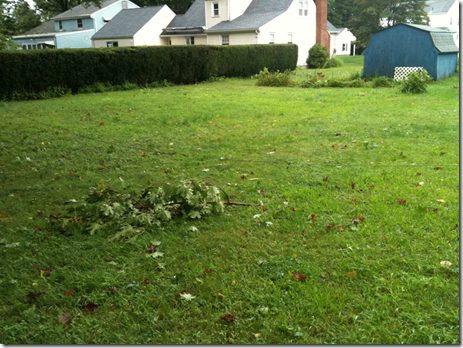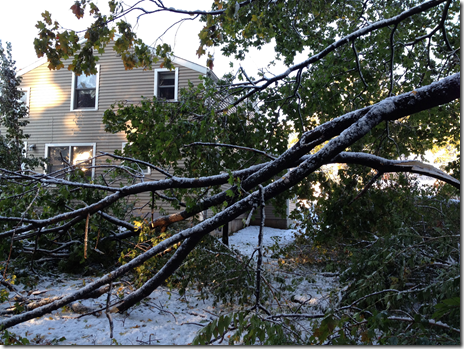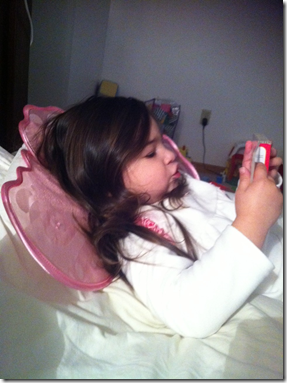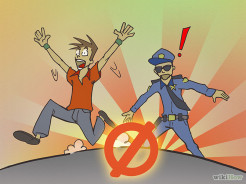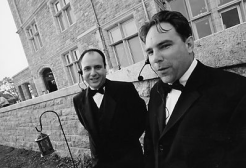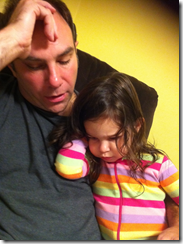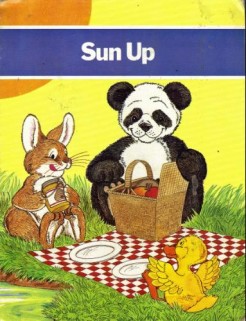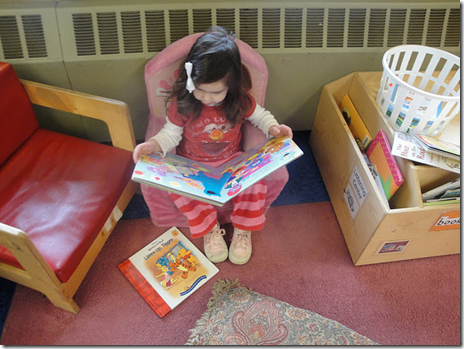The Clowns final rehearsal
/Just one week before The Clowns, our rock opera, hits the stage! The band had a final rehearsal during Saturday’s snowstorm.
Next Saturday, the band and the actors come together for the first time for an all-day rehearsal before the Saturday evening performance.
This all began back in 2007 when friend and colleague Andy Mayo approached me with nine songs, all recorded and sung my him (female parts included), and the basic outline for a rock opera.
Looking for someone to flesh out the story and write the dialogue, he asked me if I would be interested.
I said yes, assuming that nothing would ever become of it.
Boy was I wrong.
Here’s a peek into a few of the songs that will be performed at part of the upcoming show. The person singing is Andy Mayo, who will be required to sit throughout the rehearsal and performances on Saturday and Sunday.
I don’t see it happening.
Low self confidence makes people annoying
/This is probably mean and judgmental, but I also think it’s fairly accurate: If you are offended more than once a month (and even that is a lot), you have to ask yourself why your self confidence is so low.
If you speak more than you listen, you have to ask yourself why your self confidence is so low.
If you wear makeup to the gym, you have to ask yourself why your self confidence is so low.
If you are unwilling to acknowledge the possibility that you could be wrong at almost any moment of the day, you have to ask yourself why your self confidence is so low.
If you require an apology after your feelings have been hurt in order to restore order to a friendship, you have to ask yourself why your self confidence is so low.
My successful evasion of police pursuit
/This wiki answers the question: What’s the best way to escape the police in a high-speed chase?
The short answer: Don’t. It’s damn near impossible.
It did, however, remind me of the one time in my life that I escaped the police. Admittedly, it wasn’t a high-speed chase. More like an exceptionally brief, side street sidestep, but still, I felt pretty bad-ass after the encounter.
And why, might you ask, would a fine and upstanding individual like myself do such a foolish thing?
To impress a girl, of course.
I was seventeen at the time and driving through the town of Hopedale, Massachusetts. I had just picked up Linda, a fellow McDonald’s employee, and was driving her to work.
I wasn’t actually working that day, and Hopedale was out of my way to say the least, but Linda was cute and I had a huge crush on her. We had been working together for more than six months, side by side in the drive-thru, after school and on weekends. For almost that entire time, I had been searching for an opportunity to give Linda a reason to flirt with me so I could flirt back without risking rejection.
I was a real player back then.
Having heard that she needed a ride to work, I quickly offered my services for the following day even though I was not scheduled to work myself.
About ten minutes after picking her up at her home, I was speeding down a back road when I drove through a speed trap. I instantly knew that I was in trouble. I was driving at least 20 miles an hour over the speed limit, and Hopedale was (and still is) famous for its aggressive ticketing of speeders.
Sure enough, as I glanced in my rear view mirror, I saw the cruiser pulling out from his hiding place on the side of the road, blue lights already flashing.
Had Linda not been in the car, I would’ve pulled over immediately.
Had I not been so familiar with this particular stretch of road, I would’ve pulled over immediately.
Had conditions not been favorable for an escape attempt, I would’ve pulled over immediately.
But Linda was in the car, and I was coming upon a series of sharp curves in the road that I knew well. The desire to impress Linda, combined with a moment of criminal inspiration, forced me to grip the wheel hard and press the pedal to the floor.
As I took the first sharp curve in the road, I looked in my rear view mirror to determine if the cruiser was still in view.
It was not.
Hoping that the cop was far enough back for me to execute my escape plan, I spun the wheel left and skidded up the driveway of the nearest home. The driveway ascended a gentle incline to the right of the house, ending with a series of flowers and bushes adjacent to the side door of the house.
When I reached the top of the driveway, I continued past the house, running over flowers, a lawn ornament and a stone path and onto the back lawn. Then I turned left again before skidding to a halt behind the house, my car entirely shielded from the street.
All this happened extremely fast. Linda didn’t have a moment to say a word as my car flew up the driveway and skidded into this unknown person’s backyard. When the car finally came to a stop, she was silent for about a few seconds before launching into a profanity-laden tirade about the stupidity of my actions.
Her complaints included (but were not limited to):
1. The stupidity of running from the police
2. The physical and legal danger in which I had placed her
3. The possibility that someone might be inside the house even though there was no car in the driveway
4. Her longtime certainty of my utter idiocy
As she was screaming at me, two thoughts ran through my mind in alternating waves:
Did the cop see me pull up the driveway? I just escaped from the police! Did the cop see me pull up the driveway? I just escaped from the police! Did the cop see me pull up the driveway? I just escaped from the police! Did the cop see me pull up the driveway? I just escaped from the police!
After a few moments, I concluded that the cop mustn’t have seen me or he would’ve followed me up the driveway and would already have me in handcuffs.
Upon this realization, my thought process quickly shifted to two slightly different, alternating waves:
I just escaped from the police! Why isn’t Linda impressed? I just escaped from the police! Why isn’t Linda impressed? I just escaped from the police! Why isn’t Linda impressed? I just escaped from the police! Why isn’t Linda impressed? I just escaped from the police! Why isn’t Linda impressed?
It made no sense to me.
I had just done something brave and clever and cool. And it involved a car. I had just escaped the police, damn it!
How was Linda not tearing off my clothing at that very moment?
When she was finally finished screaming at me, she sighed, took a deep breath, and said, “Just bring me to work and don’t talk to me.”
I smiled, held my breath in hopes of finding a way to break the bad news to her, and finally said, “We can’t actually leave yet. The cop saw my car and is probably still looking for me. Hopedale is tiny. We’re going to need to wait awhile.”
“How long?” she asked.
“Half an hour?” I posited. "If we leave to soon, we’re definitely going to get caught.”
We sat in that backyard, my car idling, without saying a word, for almost an hour. Never before and never since have a seen a person express so much anger and loathing without uttering a single word.
It’s cliché, I know, but the silence in that Toyota Tercel was deafening.
In the end, Linda was late for work, and I was forced to explain the reason to the boss. Though she would eventually begin speaking to me after several weeks, my chances with her, which never actually existed, were over.
Isn’t that the way it always is with teenage boys?
We think that the best way to impress a woman is to do something dangerous and stupid in an attempt to demonstrate out bravery and mettle, when the only people impressed by these acts of lunacy and stupidity are other teenage boys.
Youth is truly wasted on the young. And the stupid.
How did you choose your career path? Or did your career path choose you?
/Someday I want to write a book that examines how people end up doing the work they do. It’s a topic that has always fascinated me.
Few people end up in the career they envisioned as a child. Though I was fortunate enough to make my childhood dreams of becoming a writer and a teacher come true, I never envisioned some of the other positions that I have held during my lifetime.
For more than a decade, I managed McDonald’s restaurants. This was a job I fell into back in high school when my friend, Danny, informed me that McDonald’s was one of the only places in the area paying slightly above minimum wage. I started working at the age of 16 and was managing the afternoon and weekend shifts by the time I was 17.
Ten years later, I was still managing McDonald’s restaurants while putting myself through college.
For about five years, I worked in banking, first as a bank teller and then as a customer service representative and assistant manager. I fell into this job after answering an ad in a newspaper for the now-defunct South Shore Bank of southern Massachusetts. Eventually I would work for the also defunct Bank of Boston and the Bank of Hartford before leaving banking entirely and going to college.
My career as a wedding DJ began with a phone call in 1997 from my best friend, Bengi, who was looking for a way to make some more money and had recently been disappointed by the DJ that he had hired for his wedding. Having hosted many parties when we lived together following high school, he thought we could do better.
“Do you want to start a DJ company?” he asked. “You know… for weddings?”
“Sure,” I said. “Sounds good. But I’ve got a paper to write for my Econ class, so let’s talk about it later.”
That was all it took.
Three months later, we hosted a company launch party for our friends and family at a local VFW, and three months after that, we were working at our first wedding.
I decided to become a life coach after listening to an acquaintance of my wife describe the life coaching classes that she had just completed in order to become a certified life coach. I was fascinated by the idea that someone with a relatively uneventful life and limited personal success might think that a series of college classes would make him or her an effective life coach.
I realized that if I were to hire a life coach, I wouldn’t want someone merely schooled in the art of life coaching. I would want a coach who had overcome great obstacles in life and achieved significant personal and professional success despite the challenges placed before them.
In that moment, I decided that I wanted to be a life coach.
Three years later, I had my first paying client.
When I meet a person for the first time, I often inquire about the path they choose to the career they have today, and how little choice plays a role. These stories are often filled with chance, coincidence, luck and unexpected twists.
It fascinates me to realize how little control so many people have over their career paths, and how few people fulfill their childhood dreams, not always because those dreams changed, but because a more viable, convenient or profitable opportunity presented itself.
Recently I read about Richard Branson’s path to founding Virgin Airways, and couldn’t help but smile. The man who owns one of the premier airlines in the world and is making strides to become one of the first commercial airlines capable of taking passengers into space began his career thanks to a cancelled flight.
“In ’79, when Joan, my fiancée and I were on a holiday in the British Virgin Islands, we were trying to catch a flight to Puerto Rico; but the local Puerto Rican scheduled flight was cancelled. The airport terminal was full of stranded passengers. I made a few calls to charter companies and agreed to charter a plane for $2000 to Puerto Rico. Cheekily leaving out Joan’s and my name, I divided the price by the remaining number of passengers, borrowed a blackboard and wrote: VIRGIN AIRWAYS: $39 for a single flight to Puerto Rico. I walked around the airport terminal and soon filled every seat on the charter plane. As we landed at Puerto Rico, a passenger turned to me and said: “Virgin Airways isn’t too bad – smarten up the services a little and you could be in business.”
Imagine how different Branson’s life would have been had that flight to Puerto Rico not been cancelled.
What was the path that you took to your career?
Was it fraught with chance, happenstance and dumb luck?
Or was planned and executed with precision?
I want to know.
Same world, different view of police officers
/A police car followed me on the way to work yesterday, and as I was driving, it occurred to me how differently I perceive the world in comparison to most of the people I know. For most people, discovering a police car in their rear view mirror can be slightly unnerving, but for me, it’s an entirely different situation.
When I was 19, I was arrested and prosecuted for a crime I did not commit. I’ve written about the incident before, so I won’t go into details here, but suffice it to say that my arrest and subsequent prosecution came as the result of a single police officer who was convinced that I had stolen money from my employer, despite the fact that my employer did not believe that I was guilty and did not press charges.
In the end, I was found not guilty, but not before my arrest and the subsequent trial cost me my job, more than $25,000 in legal fees and two years of my life. The arrest also placed me in the position to later be robbed at gunpoint and suffer more than a decade of post traumatic stress disorder.
One police officer's conviction that I was guilty changed my life forever.
As a result, I do not trust police officers.
Though I know several cops on a personal level and respect and admire the work that all police officers do, I am also keenly aware of the power that they possess and their ability to ruin an innocent person’s life as a result.
When I see a police officer in my rear view mirror, my mind immediately returns to 1991.
I recall the intimidation and the humiliation that the police officers used in an attempt to coerce me into a confession.
I recall the paralyzing fear for my freedom and my future that consumed me for almost two years.
I recall the loss of my home and the long nights spent homeless, sleeping in the backseat of my car, wondering how I would survive the approaching New England winter.
I recall the nights spent crying on a cot in the pantry of a family of Jehovah’s Witnesses who agreed to take me in when I had no place else to go.
I recall the two years spent working 70-80 hours a week in order to pay for my legal fees while my friends and girlfriend were off at college, preparing for their futures.
I recall the intensity and stress of the trial. The fear of the unknown. The realization that one man’s decision could send me to prison for five years of my life.
These are the thoughts and images that flood my mind whenever I drive by a police officer.
I wonder if the cop is running my plates. Examining my arrest record. Thinking that I somehow got away with a crime twenty years ago. Maybe dodged prison on a technicality. Made a fellow officer look foolish in the process.
I wonder if that cop is just looking for a reason to pull me over, search my car and find a reason a lock me up.
Paranoid? Perhaps. But spend two years of your life waiting to be tried for a crime you never committed and tell me that I am paranoid.
We need police officers to keep us safe. We ask these men and women to risk their lives on a daily basis for salaries that do not match their station in society. We trust these brave individuals to do the right thing on our behalf, and they almost always do.
But there is an inherent, unspoken danger in the existence of law enforcement as well. By conferring authority and power on these people, we run the risk of them not being perfect.
We run the risk of police officers making mistakes.
For most of us, these mistakes are hypothetical, and as a result, they are palatable and easily ignored. They do not strike fear in our hearts. For most people, the thought that they might be arrested, tried and convicted for a crime they did not commit never even occurs to them.
Until 1991, it never occurred to me.
In most people’s minds, it’s theoretically possible by realistically impossible.
But I know that this is not true. For a few of us, the impossible has become the possible.
For me, the possibility that I could be arrested and tried again for a crime I did not commit is always present in my mind. Not a day goes by that I do not think about it. It's underscored every time I drive by a police officer or walk past a cop on the street.
The world looks slightly different to me. It is shrouded in a veil of uncertainty and constant anxiety.
I am jaded, but I have a good reason to be so.
500 years ago was not that appealing
/You have to wonder what someone from the fourteenth or fifteenth century might think if he was to discover that people in the twenty-first century were spending their weekends at outdoor fairs designed to recreate the spirit of the Renaissance.
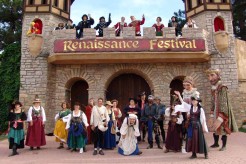
Sure, it was a time of enlightenment, but it was also the time of the Plague.
It was an age absent of penicillin, electricity and indoor plumbing.
The life expectancy at the time was about 30 years.
If you weren’t born wealthy and male and white, you had almost no say in what your future would hold.
In comparison to today, it was not a great time to be a human being.
Sure, everyone loves a good funnel cake and a nifty crossbow demonstration, but I have to think that a person who actually lived through the Renaissance would think it slightly odd, if not altogether stupid, to relive such a base time in human history.
Martin Cooper kicked Alexander Graham Bell’s ass
/One of my favorite people in all of human history is Martin Cooper. Ever heard of him?
Cooper was a member of the Motorola team that invented the first cellular telephone back in 1973.
While I am immensely appreciative of the convenience and joy that my iPhone provides on a daily basis, it is not Cooper’s inventiveness that I admire most.
It was the choice he made when deciding upon who to call first.
For his first public cellular phone call in human history, Cooper took to the New York City streets and called his rivals at AT&T and inform them that they had lost the race to build the first functioning cell phone.
The combination of New York’s busy street sounds and Cooper’s voice told the engineers at AT&T that they had been bested.
Now that was one hell of a phone call.
The perfect combination of comeuppance, spite, humor, and bravado.
The inventor’s version of my four favorite words:
Can you even imagine a better phone call?
Contrast this to Alexander Graham Bell, inventor of the telephone, whose first call was to his assistant in the other room:
"Mr. Watson—Come here—I want to see you.”
Alexander Graham Bell might have been a great inventor, but he sucked at understanding the importance of the moment.
"Mr. Watson—Come here—I want to see you.”
Is that the best he could do?
It makes me wish someone a little wittier, a little meaner or someone with a greater flair for the dramatic had invented the first telephone.
Someone like the great Martin Cooper.
What the hell was that supposed to mean?
/In searching for a story that would fit The Moth’s GrandSlam topic Deal Breakers, I asked a few of my friends to suggest a possible story idea or a general direction.
One of my friends suggested this:
“…your ability to break the social contract by arguing and fighting with the general population.”
This suggestion was neither helpful nor appreciated.
I would not have handled this situation nearly as well
/
For those of you not following the publishing industry closely, this is a good and amusing summary of the recent debacle involving the National Book Awards.
I must admit:
Had this happened to me, I would have acted with considerably less dignity.
Perhaps no dignity at all.
Kudos to you, Lauren Myracle.
It’s 6:00 on a Saturday morning. Are you awake?
/It’s Saturday morning. I am sitting at my computer, writing. It’s 6:00 AM. I have awake for more than an hour. The dog has been walked. The dishwasher has been emptied. I have been pounding away on the keyboard for quite a while.
Currently, I am reading and responding to work emails that I did not have time for the day before.
A direct message arrives from my editor via Twitter. She’s expressing a smidgen of excitement over recent developments related to my next book.
It’s 6:14 AM on a Saturday.
Ten minutes later I receive a text message from my friend, Jeff. He is also responding to work emails and has a work-related question for me.
It’s 6:25 AM on a Saturday.
The fact that all three of us are already awake and working before 6:30 AM on a Saturday morning is surprising.
Except I am not surprised.
There is a small, perhaps infinitesimal, segment of the population for whom this is the norm. When you discover one of these people, you don’t soon forget who they are.
These are the people who make you feel a little more normal and a little less lonely when everyone else in your house is asleep.
What I find the most fascinating is that my editor and my friend were so certain that I would be awake that they did not have any reservations about sending me messages this early in the morning.
Messages that might have awakened me had I been sleeping.
But they knew I would be awake. In fact, Jeff has texted and called me in the wee hours of the morning on many occasion, knowing full well that he would not be waking me up.
The hours before 7:00 and even 8:00 on a weekend morning can be a productive but a lonely time for me.
It’s so nice to know that I am not the only one making use of these solitary, dark hours of the day.
Not nice
/My daughter has begun to demonstrate some of the defiance that is common in toddlers her age. One of the ways this manifests is in her rejection of all things, regardless of how appealing they may actually be. Other times, however, it would appear that she is simply being herself. When we ask her what she wants to be for Halloween, she has repeatedly said, “I just want to be Clara.”
The other day I was reading her a book that invited the reader to play the role of a fruit. I asked Clara what fruit she wanted to be. She said, “I’m not a fruit. I’m Clara.”
As a result of these developments, it sometimes appears as if my daughter has developed a bit of a contrarian streak, which mayor may not resemble her father’s own streak of contrariness.
Either way, it’s perfectly normal, regardless of what my wife may say.
A recent conversation between my wife and my daughter:
Wife: I’m going to make a cake.
Daughter: Don't make a cake!
Wife: You get your contrarian nature from your father.
Daughter: I'm sick, Mommy.
Wife: That's one way to think of it.
I couldn't read the word "the"
/I don’t know what I was thinking. When I asked my sister to write this blog with me, I didn’t expect every entry to be an attempt to embarrass or humiliate me.
This entry is posted over on our brother-sister blog, but it seemed especially fitting to post it here as well, since it pertains to my life as a reader. ____________________________________________________
When Matt first started kindergarten, I thought he was the luckiest person alive. He got new clothes, he got to ride on a big bus, and he was allowed to leave the house for a few hours without Mom.
Jeremy and I were so jealous. In our eyes he was a man of the world.
We would wait anxiously for him to return, watching in the picture window for the bus to pull up. He would walk up our driveway everyday, backpack strapped to his back, holding Mom's hand. When he came in, he would sit at the table and have Mom's undivided attention.
I thought he was so lucky, until this one day.
In kindergarten in Blackstone (back in 1976, at least), the first book you were given to read was called Sun Up. The beginning of the book reads:
The sun was up. Bing was up. Sandy was up. Bing and Sandy was up.
Clearly the author of the book cared more about learning to read than grammar.
Matt took the yellow and orange book out of his backpack and showed Mom. She told him to read for her. He looked at the cover of the book and read the title.
"Sun Up," he said.
Mom was so proud.
I was so jealous. He was reading words from a book. Real words. Not just making them up. He knew what the words really said.
He opened to book to the first page. He was so confident because he had just read the title with ease. The first word was the.
Matt looked at the word and said "ta-ha-eee".
Mom had to tell him the word was the.
He corrected himself and continued reading. Soon enough the word the came up again. Again Matt said "ta-ha-eeee".
I could hear the frustration in Mom's voice. The word came up several more times on those first few pages, but not once could he read the word correctly.
Finally Mom told him it was time to take a break. I think it was all she could do to keep from strangling him.
My brother, the published writer, struggled and struggled with the word the.
When it was my turn to go to kindergarten and read Sun Up, I never stumbled on the word.
I guess I have my brother to thank for that.
____________________________________________________
A few comments regarding my sister’s post:
- I also remember Sun Up and could have recited the first page from memory as well.
- I also recall the grammatical issue in the fourth sentence and have never quite understood why it was allowed to stand.
- I tried to find an image of the cover of Sun Up online but was unsuccessful. I did, however, locate many academic papers which reference the book as one of the more popular of the basal readers of the 1970’s.
- Apparently the book lacked racial diversity and sucked in terms of providing children with quality reading material. It also appears to have been reprinted well into the 1980’s, with the characters of Bing and Sandy replaced by Buffy and Mack.
- I also recall struggling to read the word the, and I struggled with it for quite a while (though in the mind of a kindergartner, that could have been a day or two). I can also distinctly remember the moment when I read it correctly for the first time and it finally made sense. A big moment in my then brief existence.
- I find it amazing that I was sent off to kindergarten unable to read a single word and was never read to as a child. As a father, this fact becomes more incomprehensible by the day. Honestly, what the hell was my mother doing?
- It was good to learn from my sister that my mom would meet me at the bus stop and hold my hand as we walked up driveway. I have no memories of this, and I have very few memories of these mother-son moments from my childhood. As we got older, the amount of parenting that we received declined sharply. These kindergarten moments with my mom may have represented a watershed for me in terms of parental involvement. It’s a happy picture that my sister has painted for me.
